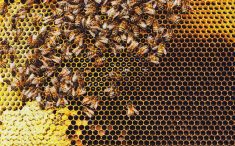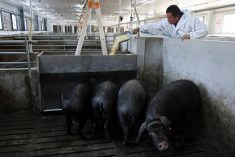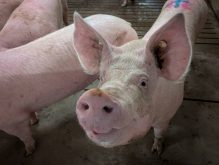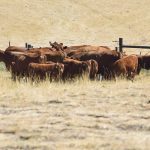Expecting “continued difficulty” in Canadian beef and pork production, livestock feed manufacturer Ridley Inc. has closed its books on fiscal 2009 with a US$1.3 million loss.
The company, which operates out of Winnipeg and Mankato, Minn., reported Thursday that its loss for the year ending June 30 comes on $603.4 million in revenues, down from a net profit of $6 million on $633.5 million in revenues in fiscal 2008 (all figures US$).
The 4.7 per cent drop in revenue comes from a 12.7 per cent overall decline in sales volume for the year, offset by higher average selling prices earlier in the year when raw material prices were near record-high levels.
Read Also
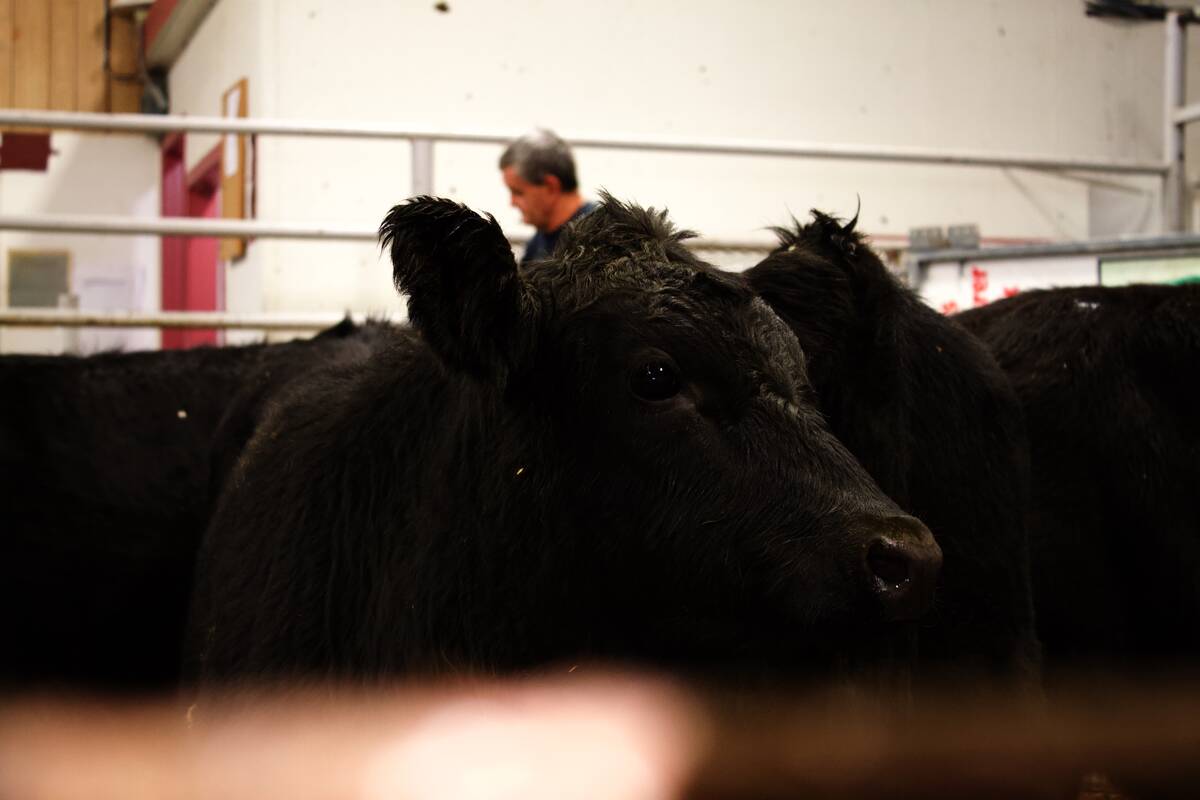
U.S. livestock: Cattle rally, hogs rise
Chicago cattle rallied on Monday. Lean hogs also rose. Most-active April live cattle futures closed at 239.525 cents a pound,…
Ridley Feed Operations, the company’s feed, supplement and premix wing, reported a $48.8 million reduction in revenues from a 13.7 per cent decline in sales tonnage.
The company’s Ridley Nutrition Solutions division, which handles supplement blocks and equine nutrition, and its Ridley Feed Ingredients division, which makes feed-grade vitamins and additives, each reported boosts in gross revenues as “higher average raw material costs forced selling prices higher.”
Goodwill writedown
Also weighing on the bottom line for 2009 is an $11.4 million non-cash writedown of goodwill, as the company expects continued difficulty in the hog and cattle business in Canada in the near term.
“While the underlying earnings in Canada were on par with last year, and the business continues to generate positive cash flow, the immediate outlook for livestock production remains extremely difficult,” CEO Steve VanRoekel said in the company’s release Thursday.
“This accounting step has no impact on the operations of our business, and we continue to be positive longer-term about meat, milk, and egg production in Canada and our business performance there.”
In 2009, however, demand was “significantly affected” by the combined effects of poor livestock and poultry producer economics, largely a result of relatively high feed prices and weak demand for meat and milk products.
“The impact on Ridley’s operating income was ameliorated somewhat by measures taken earlier in the year to restructure operations and reduce operating expenses,” the company said.
On the upside, VanRoekel said, “a combination of lower ingredient prices and a focus on inventories and expenses allowed us to reduce our bank debt by $8.8 million in fiscal 2009 to just $10.6 million at year-end, our strongest balance sheet ever.”



